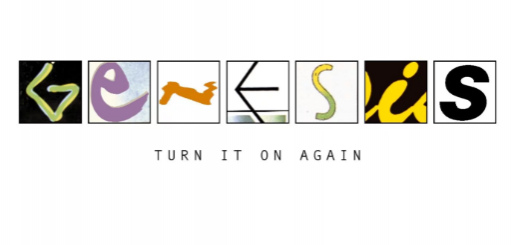Mama by Genesis Lyrics Meaning – Decoding the Emotional Complexities
Lyrics
But I can hardly wait
And to touch and to feel you, mama
Oh I just can’t keep away
In the heat and the steam of the city
Oh it’s got me running and I just can’t brake
So say you’ll help me, mama
‘Cause it’s getting so hard, oh
Now I can’t keep you, mama
But I know you’re always there
You listen, you teach me, mama
And I know, inside you care
So get down, down here beside me
Oh you ain’t going nowhere
No, I won’t hurt you, mama
But it’s getting so hard, oh
Ha ha, ha, ha ha, ha oh
Ha ha, ha, ha ha, ha oh
Can’t you see me here, mama
Mama, mama, mama, please
Can’t you feel my heart
Can’t you feel my heart
Can’t you feel my heart oh
Now listen to me, mama
Mama, mama
You’re taking away my last chance
Don’t take it away
Can’t you feel my heart?
Ha ha, ha, ha ha, ha oh
It’s hot, too hot for me, mama
But I can hardly wait
My eyes they’re burning, mama
And I can feel my body shake
Don’t stop, don’t stop me, mama
Oh make the pain, make it go away, hey
No, I won’t hurt you, mama
But its getting so hard, oh
Now I can’t see you, mama
But I know you’re always there
You taunt, you tease me, mama
But I never, never, never can keep away
It’s the heat and the steam of the city
Oh got me running and I just can’t brake
So stay, don’t leave me, mama
‘Cause it’s getting so hard, oh
Don’t go,
No no, don’t go
Mama, mama, don’t go
No, don’t go
No no no no, don’t go ha ha
Don’t go
Within the realms of progressive rock, Genesis stands out not only for their evocative melodies but also for their layered lyrical content, none more intriguing than their hit song ‘Mama’. As we peel back the layers of ‘Mama’, we uncover a compelling narrative that is as rich in emotion as it is ambiguous in interpretation.
Originally released in 1983 as part of their eponymous album, ‘Mama’ quickly became one of Genesis’ most iconic tracks. Its haunting synthesizer intro, accompanied by Phil Collins’ distinctive laugh, sets the stage for a deep dive into the song’s narrative. Lyrics steeped in longing, pain, and a touch of the Oedipal beckon listeners into the psyche of the protagonist.
An Oedipal Undertone or a Darker Tale?
At first blush, ‘Mama’ appears to tell the story of an Oedipal relationship, where the protagonist harbors an obsessive affection towards his mother. The constant pleas and the intense yearning delineated in the lyrics suggest a fixation that transgresses normal familial bonds. The reference to wanting touch, the inability to stay away, and the maternal figure’s perceived control resonate with the themes of classical psychoanalysis.
However, another layer reveals itself upon closer examination. The maternal figure in ‘Mama’ might not be a literal mother at all, but a metaphorical representation of an addictive or inaccessible love. This could be an infatuation with a lover, an unattainable dream, or a destructive habit. Through this lens, the song is a vessel for the universality of longing and the pain of desire unfulfilled.
In the Heart of the City’s Heat: A Metaphor for Inner Turmoil
The ‘heat and the steam of the city’ is an allegory that Genesis skillfully weaves throughout ‘Mama’. It evokes not only the oppressive environment that surrounds the protagonist but also mirrors the fevered state of their own emotions. The city is alive, pulsating, and inescapable, just like the relentless yearning the singer expresses towards mama.
This metaphor is reinforced by the frenetic pace and rhythm of the song. The synthesizer’s relentless beat and the crescendoing vocals replicate the protagonist’s rising desperation and the city’s overwhelming force. It becomes unclear whether the protagonist is seeking escape from the physical city or the emotional labyrinth they find themselves trapped in.
The Haunting Laughter: A Symbol of Madness or Mockery?
The mocking laughter that opens and recurs throughout ‘Mama’ is a defining feature of the song. It can be interpreted as a display of the protagonist’s madness, a reflection of their emotional state teetering on the edge of sanity. The laughter serves as an eerie thread, sewing together the spools of sentiment and tension within the fabric of the music.
Conversely, this laughter might symbolize the internal mockery the singer feels from ‘mama’, an audible representation of rejection and derision. It’s as if the protagonist is being ridiculed for their vulnerability and obsessive need, reinforcing the themes of longing and the elusive grasp of fulfillment.
The Cry for Maternal Salvation: Unpacking the Pleas to ‘Mama’
Throughout the song, the repeated calls to ‘mama’ for help and the emphatic ‘don’t go’s highlight a deep-seated need for protection and understanding from the maternal figure. The protagonist seems caught in a paradoxical dance of seeking relief from the same source that inflicts their torment, portraying a complex relationship riddled with dependence and pain.
These pleas may emphasize the human condition, where one naturally seeks comfort in familiarity, even when it might be the root cause of distress. The complex dynamic between the need for maternal comfort and the push towards independence plays out with raw emotion in ‘Mama’, capturing the essence of human fragility.
Memorable Lines: ‘Can’t you feel my heart?’ – The Universal Scream for Empathy
In the throes of despair, the protagonist beckons ‘mama’ to recognize the intensity of their emotions. ‘Can’t you feel my heart?’ is a line that resonates beyond the specific context of the song, embodying the plea for empathy that is intrinsic to human connection. The song’s narrative asks listeners to consider the depth of their own ability to empathize.
That desperate call for understanding becomes the focal point around which the song pivots. It’s both a question and a command, a cry for recognition, and an indictment of the maternal figure’s seeming indifference. This line perfectly encapsulates the essence of ‘Mama’ – the relentless pursuit of compassion within the jarring reality of its absence.








